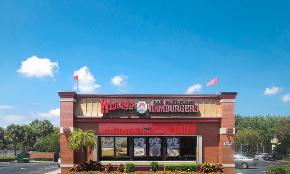 Terry: “What used to be perceived as a risk is now a gamble worth taking because of all of the potential upside.”
Terry: “What used to be perceived as a risk is now a gamble worth taking because of all of the potential upside.”
TUSTIN, CA—Retail landlords today are much more willing to consider a start-up or growing venture in search for a uniqueness that will create an experience and increase traffic, Coreland Cos.’ senior associate Ben Terry tells GlobeSt.com. With big-box tenants toppling and consumers seeking fresh, interesting retail experiences, we spoke exclusively with Terry about this refocus in the retail sector from national-credit tenants to entrepreneurial new concepts.
GlobeSt.com: Why are retail landlords looking at start-ups and new concepts differently today than they did 10 years ago?
Terry: Unlike the industry pre-recession, when national chain tenants with established credit dominated the market, landlords today are much more willing to consider a start-up or growing venture in search for a uniqueness that will create an experience and increase traffic. What used to be perceived as a risk is now a gamble worth taking because of all of the potential upside.
Welcoming a unique, fresh new restaurant into your shopping center, especially one with local flavor, can be a tremendous driver of traffic, and introduce a new customer to your shopping center. Of course, start-up or growing concepts have to be properly vetted. But if you have a strong restaurateur with strong financials, then all of the upside offsets the additional sense of security a landlord has historically depended on with national-credit tenants.
GlobeSt.com: What are the risks and benefits of leasing to a start-up or newer venture?
Terry: There is really no way of being absolutely sure that a concept will succeed. You can’t sample a start-up concept in various locations to be completely comfortable with the level of service, product and presentation. However, I’m not sure that there are many “sure bets” in today’s market. Pockets aren’t as deep for growing concepts, so you are less likely to collect in a default … but this is no more challenging than dealing with the surprise BK filing of Sports Authority, for example. With the change in bankruptcy laws, the old approach to only chasing national credit doesn’t always pay off.
A new concept with a strong social-media presence will increase gross sales, drive traffic and reinvigorate a center. If you confirm that they can afford to do their build out, have reserves for the first year of operations and a viable marketing plan … why not?
GlobeSt.com: How do these concepts impact the thriving restaurant sector from a real estate perspective?
Terry: New, local or specialty restaurant concepts have been a huge boost to the restaurant sector. Uniqueness is what differentiates today’s retailers or restaurants, and a shopping center’s differentiation is directly related to the mix of restaurants available. If a concept starts to generate a real buzz, then you have attracted a new consumer who doesn’t want to miss out on the latest trend. This buzz will positively impact overall gross sales, enhance customer loyalty and even change the perception of the shopping center.
GlobeSt.com: What examples can you give of retail start-ups or new concepts that have taken off?
Terry: One of the biggest trends of the year is the poke craze. It’s a long-time traditional Hawaiian/Japanese dish, but its introduction to the QSR scene has made a splash. We have seen different operators pop up all across Southern California—from North Shore Poke in Huntington Beach to Ohana Poke Co. in Downtown L.A. We are also seeing a number of strong dessert concepts enter the market with a great following, such as Afters Ice Cream and Cookie Connection.
Social media has given start-up ventures an amazing market tool that has leveled the playing field. National tenants used to have the advantage because of their ability to implement a robust marketing campaign, and now, new concepts such as Hiccups Tea House—known for boba teas, coffee and Southeast-Asian fare—can build demand even with only two locations.
















 Copyright © 2024 ALM Global, LLC. All Rights Reserved.
Copyright © 2024 ALM Global, LLC. All Rights Reserved.